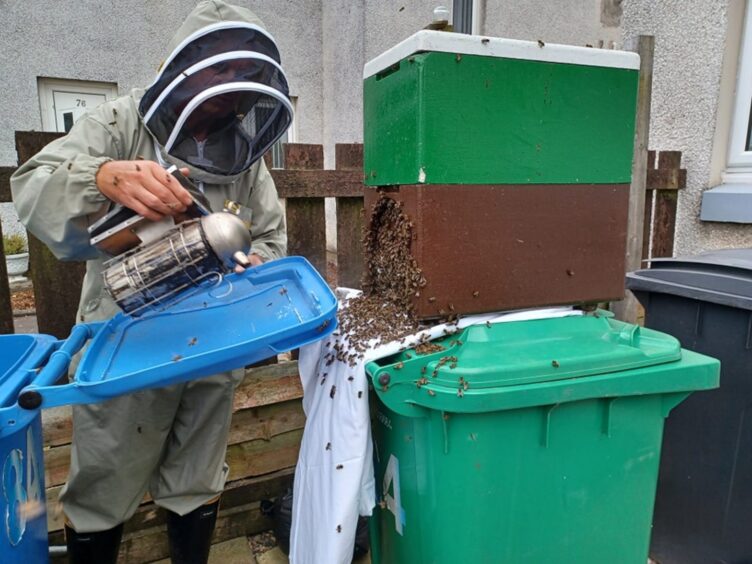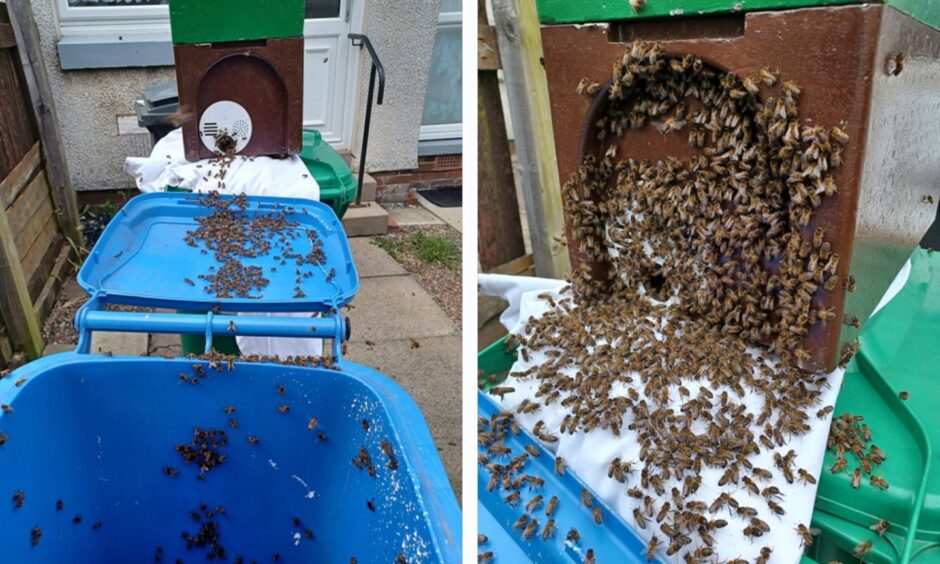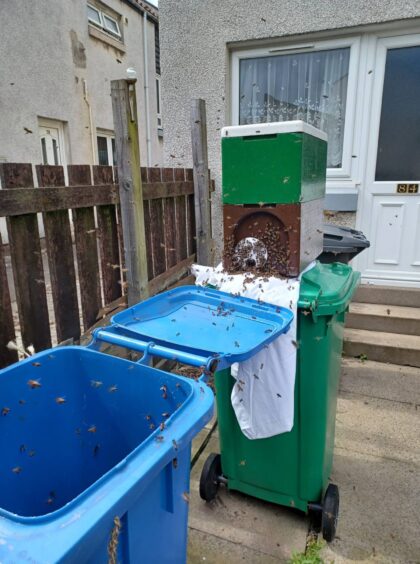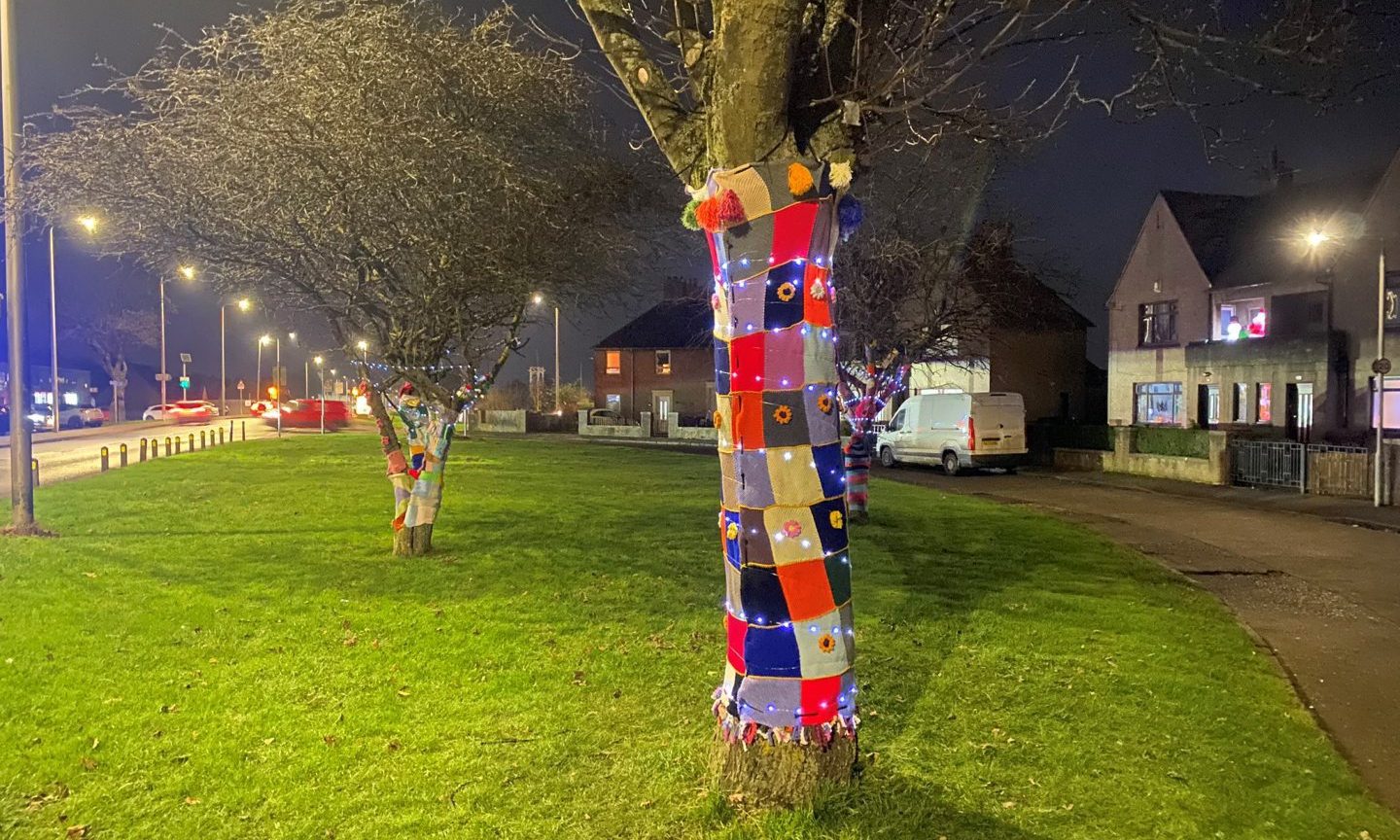Thousands of honey bees have been rescued after being found inside a Fife woman’s wheelie bin.
The swarm, believed to consist of up to 40,000 bees, had taken up residence in a blue general waste bin outside Christine Djeokeng’s home in Methil.
The Durie Street resident did not initially take too much notice when she saw a few bees flying around the bin.
However, she was left shocked just minutes later as the huge mass of bees descended.
Thousands of bees inside Methil wheelie bin
She told The Courier: “At first there were just three or four bees, which I actually thought may have been wasps, buzzing around the bin.
“But when I looked again 10 minutes later there were thousands on and inside the bin.
“It all happened so quickly so I was pretty concerned, especially as I have a four-month-old baby and wouldn’t want her to get stung.”
Christine contacted a pest control firm, which then passed the case onto bee rescue volunteers after realising they were not wasps.
Debra Thomson, who runs Leslie-based Honey from the Hive with partner Ian Gilray, was called in to help.
She said: “Honey bees swarming in a wheelie bin is uncommon but not completely unique.
“Ideally, the bees are looking for a hollowed-out tree trunk, but with the onset of urbanisation, habitats are becoming increasingly scarce.
“They were attracted to the bin due to its shape.
“When we arrived the swarm was all around and inside the bin.
“The worker bees follow the queen bee wherever she goes.
Group saves 30,000-40,000 bees from Methil bin
“By locating and then moving the queen bee into a box, within seconds there was a steady stream of bees following her.
“The whole extraction took several hours.
“Thankfully we’ve been able to save between 30,000 to 40,000 honey bees, which we are delighted about.
“They are now residing in our garden in Leslie and doing very well.
“Methil was the last place we expected to be called out to as it’s a largely built-up area, but we are glad we got there in time.”
Honey bees are known to move on from old nests to establish new ones at this time of year.
With their queen at the helm, the swarm will move as one unit – often temporarily settling for up to two days as they seek out new places to live.
Debra was also quick to praise the pest control officer for realising they were honey bees and not killing the swarm.
‘Bees are vitally important’
She added: “All too often, people will panic thinking the swarm puts them at risk, but it’s simply an act of nature.
“It’s a sign that the bees are thriving and have simply grown too large so have swarmed in search of a new home.
“The last thing we want people to do is reach for the chemical solution that will kill the bees or get someone in to destroy them.
“Bees are vitally important, which is why we are on hand to come and rescue as many of them as we can.”













Conversation